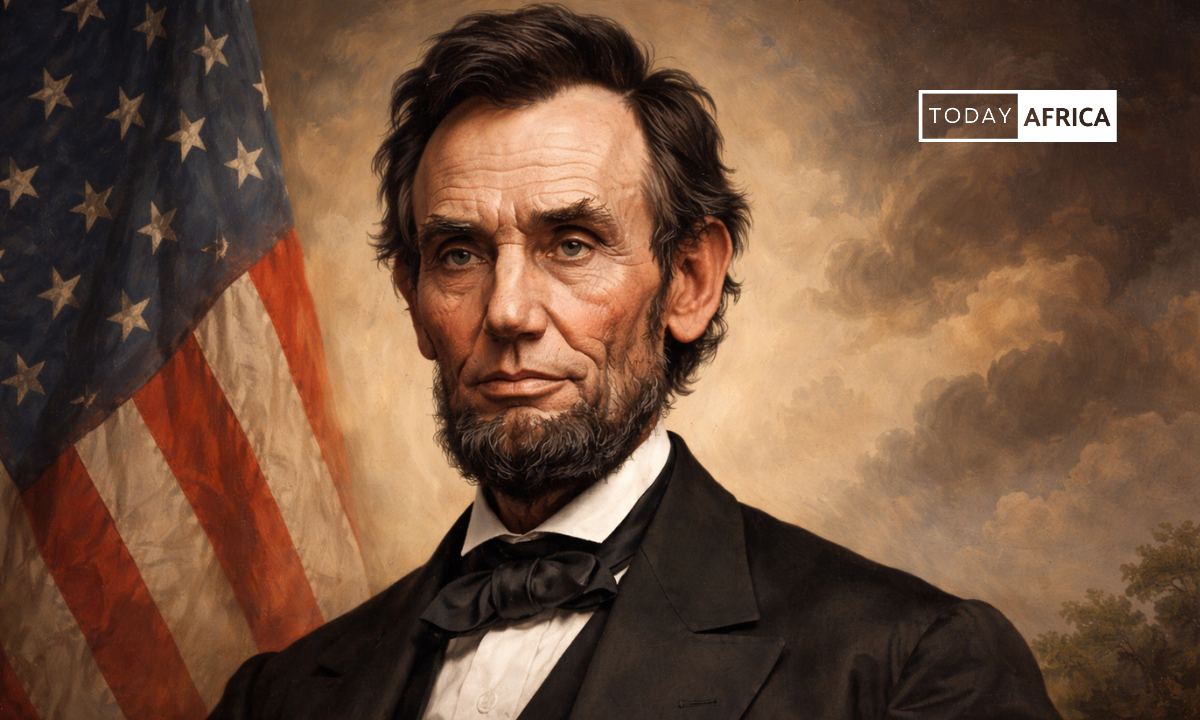The only constant thing in life is “change”; one such inevitable transition is our departure from this life.
Even though the subject matter “death” is perceive as taboo by many, everyone wishes to make the last journey of their loved ones special and memorable.
Africa accounts for 17.89% of the world’s population with over 1.4 billion people. Often, amidst the hustle-bustle of urban life, properly managing the last rites of the deceased becomes a challenge.
Africa is a continent of diverse cultures, but the commonly shared notion of paying last respects to the departed soul comprises complex customs and practices. These customs vary widely between cultures, religious groups, and sub-culture denominations.
Death Care Services Industry
Death Care as a service provides support to the deceased’s family by taking care of all the aspects of last rites. Giving them free mental space and time to grieve, uninterrupted without worrying about the elaborate arrangements.
Since the rituals involve many layers of customary practices. When a death occurs, family members get busy making necessary arrangements for the last rites amidst their colossal grief.
This often takes a toll on them as they struggle to process the loss of their loved ones. In the instance of someone’s death, time is of vital essence. In many cultures, burial cannot be done post sundown, and if not acted swiftly, other complications may arise.
Hence, having a structured service that can quickly make necessary arrangements is of great help.
Death care services also work to arrange a mortuary ambulance, freezer boxes, and all the paperwork required to transport a body domestically or internationally.
The fast pace of the 21st century has led to the majority of Africans living away from their native home in a nuclear or small family setting.
During someone’s death, such families go through utter unrest trying to figure out how to make necessary arrangements for the last rites of the deceased.
This problem got much worse during covid waves, as mourning families faced horrid challenges in burying their dead. In some cases, even getting family together in a place was a challenge. That’s when death care companies like Safiri Salama introduced livestreaming to their services.
People felt a dire need for organized death care and funeral service dearly at that time. Death care services in Africa have been unorganized and highly fragmented. But with companies like Safiri Salama, Africans are knowing who to contact in case of an unfortunate loss.
What Does the Death Care Industry Mean?
While the word industry may sound like a one-size-fits-all approach to afterlife services, the death care industry is not simply a money-making opportunity. We need services that can help us manage the logistics of death, and the death care industry provides the tools we need to ensure that our loved ones are laid to rest with dignity and care.
For instance, when a loved one dies, their body needs to be cared for immediately. Having services in place to help us embalm or cremate our loved ones quickly is an example of how death care can be industrialized for the better.

This is a task we can’t perform ourselves that needs to be overseen by experts — it’s a blessing to have professionals we can trust to care for these logistical necessities, giving us the time we need to grieve our incredible loved ones.
What Is Death Care?
Another way of thinking of death care is to think of it as afterlife services. Unlike hospice or palliative care for end of life, death care helps us manage the events after our loved one has passed.
Death care is an industry that has been built on key principles of honor, ethics, and hygiene. For instance, when a loved one dies, there are several steps that are taken to ensure that their body is treated with the utmost respect and dignity.
The clinical side of death care ensures that our loved ones are laid to rest ethically and hygienically. Being careful to ensure that our loved ones are handled humanely and hygienically is crucial to preventing the spread of disease and maintaining dignity even after death.
Death care isn’t just the technical side of death but also deals with the commemorative and memorial aspects of it. While these services typically go hand in hand, these two sides of death care are very different.
Humans are communal in nature. From the moment we’re born, our life experience is a mixture of nature and nurture from those around us. As we progress through life, we experience milestones through celebrations and memorials. Graduations, birthday parties, marriage, and even difficult events like divorce and death are experienced alongside the support of our loved ones.
When someone we love passes on, an important part of that process is the social aspect of death: the funeral, the memorial, and the choices we make to commemorate their memory and keep them close. This is the other side of death care that is equally as important as the technical aspects of caring for our loved one’s physical bodies.
What Are Our Death Care Options?
There are no right or wrong options when it comes to post-life services — instead, we must choose the option that honors us and our loved ones’ desires best.
Donation to science
Donating our bodies to science is a selfless and honorable choice. This form of afterlife service bypasses the cost of funeral arrangements, burial, or cremation. Our body is immediately processed into scientific research.

This is a kind option that helps provide a legacy for all of humankind, as this research is a great asset to the scientific community. However, as noble an option as it may be, there is a clear drawback that means it will not be the choice for everyone, especially in Africa.
Burial
One of the most traditional forms of death care is burial, a well-known process that has been passed on for generations. While burial can be sentimental for many, it does come at a higher cost than other memorial options.
It not only requires a funeral home, but also the expense of a casket and chemical preparation through embalming.
Read Also: Deathtech: How Safiri Salama is Pioneering the Death Care Industry in Africa
While there are varying levels of financial commitment associated with different burial options, burial is largely the most expensive option for afterlife services.
Families and loved ones who chose burial likely do so because it provides a special opportunity to communally celebrate their loved one’s remarkable lives using the traditional services that burial provides.
Cremation
This is the process of transforming the human body into what is known as human ashes. Cremation can be done through heat-based processes or liquid-based processes, also called aquamation.
Each style of cremation has a different level of financial commitment, but they both allow surviving friends and family members to receive their loved one’s ashes for memorial purposes.
Families may choose to hold traditional memorial services using the ashes in place of a body, or they may scatter these ashes in an area of sentimental value.
Death Care Industry Companies
SafiriSalama.com
SafiriSalama.com which takes its name from the Swahili words “Safiri Salama,” which translate to “Go in Peace” and “Travel Safely” and are often used as a farewell during bereavement, is venturing into a territory that few others in Africa have explored.
This Kenyan death tech start-up is reinventing end-of-life planning. Making the unpleasant task of bereavement in all its facets easier and manageable.
SafiriSalama.com offers these services:
- Death Notices. Enables the creation of affordable and user-controlled digital death announcements that can be shared across multiple social media platforms.
- Memorials provide a subscription to a one-stop-shop including a user-friendly noticeboard for managing a loved one’s funeral process. Preserving memories (galleries, links) and narratives collected through obituaries and eulogies, and enabling discovery through search engines.
- The Redbook, a B2B & B2C product and services online directory. This connects verified service providers in the funeral/grief industry with families. It features over 50 categories of direct, indirect, and accessory providers.
Click here to watch John Nyongesa, founder/CEO of Safiri Salama share the story behind the brand.
SOKNA
An Egyptian funeraltech startup that enables “the funeral industry in Egypt. Since launching in late 2020, the company has enjoyed a rapid expansion – growing threefold in the past year alone.
To date, SOKNA has operational partnerships with over 20 hospitals and corporates in Greater Cairo alone, has amassed more than 70 partner vendors, and has performed more than 2,500 funerals.
In Nigeria, there are funeral services like APAMs. A leading funeral logistics company in Nigeria.
Death Care Industry Jobs
There are a variety of roles available to those professionals interested in working in the death care industry. Some of these roles focus on offering support to those in hospice care or recently bereaved families, while others plan and facilitate the many aspects involved in funeral services.
Writing these jobs in the death care industry was made possible from the interview we had with John Nyongesa, the founder/CEO of Safiri Salama. Click here to watch him tell the story behind his business.
Florist
Florists provide their services in the death care industry by creating floral arrangements for funerals and memorial events. These professionals buy flowers from wholesalers, offer advice and work with clients to create arrangements that fit their preferences and budgetary needs.
Counselor
Counselors in the death care industry provide support to recently bereaved families facing challenges with grief and mental health. These professionals help families and others affected by death progress through the different stages of grief and cope with their loss through the development of coping strategies.

Engraver
Engravers may offer their services in the death care industry to create personalized memorial plaques, and headstones. These professionals typically make sketches and then use specialized equipment to etch designs, words and images onto various materials according to client requests.
Forensic science technician
Forensic science technicians play a dual role in criminal justice and death care by examining remains involved in criminal events. These professionals may perform autopsies that help them identify causes of death and collect any evidence necessary to proceed with a criminal investigation about a deceased individual.
Driver
Drivers play a key role in the death care industry by offering livery services for funeral processions. These professionals may own and operate hearses or other vehicles, such as limousines or private cars, to transport deceased individuals and their family members between locations for religious or spiritual services and burial services.
Cosmetologist
Mortuary cosmetologists are responsible for preparing deceased individuals for wakes, funeral services and interment. These professionals may perform grooming and cleaning services, dress deceased individuals and use various cosmetic products and other materials to restore a lifelike appearance. may assume the duty of gathering a decedent’s prized possessions and arranging them in their caskets prior to services or burial.
Doula
Death doulas, or death midwives, provide emotional and spiritual support to those in hospice care. They may create death plans, help with funeral services and host memorials. In addition, these professionals may support recently bereaved families and friends and guide them in understanding their emotions to find meaning in their grieving process.
Funeral director
Funeral directors, or morticians, plan, coordinate and oversee funeral services. These professionals may help prepare decedents for services, offer visitation to families, facilitate burials and supervise crematory services. In addition, funeral directors often work directly with families to provide support and advice during the funeral planning process.
Sales representative
Sales representatives in the death care industry help recently bereaved families find products or services that help them honor the lives of deceased individuals. These professionals may specialize in the sales of items like headstones, flowers, caskets, and plaques or focus on selling funeral-based services such as cremation, beautification or transportation.
Hospice nurse
Hospice nurses work in medical facilities and care for terminally ill patients. These professionals help establish care plans for patients, monitor their condition and offer emotional support to patients and their families. In addition, hospice nurses may help facilitate access to end-of-life services, such as religious services, estate management and funeral planning.
Lawyer
Lawyers in the death care industry typically offer estate planning services. These professionals may help their clients draft legal documents such as wills and trusts to manage the distribution of their assets after death. In addition, such lawyers may be able to consult with clients regarding estate regulations and what taxes or fees may apply to the inheritance of their assets.
Other jobs in the death care industry to consider
There are other roles available in the death care industry outside of those listed above. Here are 11 additional jobs to consider in your search:
- Embalmer
- Celebrant
- Crematorium Technician
- Coroner
- Cemetery caretaker
- Funeral services assistant
- Obituary writer
- Thanatologist
- Funeral attendant
- Funeral home office administrator
- Decedent transporter
References:
















